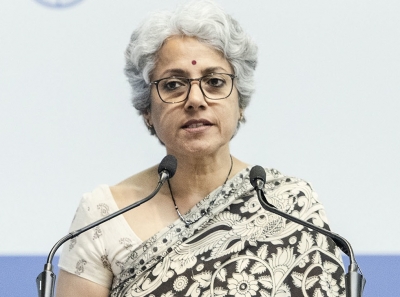No science behind night curfews in India: WHO’s Swaminathan

WHO Chief Scientist Soumya Swaminathan (File Image | IANS)
Soumya Swaminathan (File Image | IANS)
New Delhi | There is no science behind night curfews when it comes to tackling the spread of Covid variants, WHO Chief Scientist Soumya Swaminathan has stressed.
In a TV media interview, she said that countries like India must formulate science-based policies for curbing the spread of the virus.
“Things like night curfew, there is no science behind it. One has to take evidence-based measures. There is a whole list of public health measures,” she told CNBC-TV18.
“Entertainment venues are places where these viruses spread the most. It’s natural to bring in some restrictions there,” Swaminathan added.
SPONSORED CONTENT
She said that Indians need to be prepared, but not panic.
“What we can expect to see in India is a surge of Omicron cases, I think it is just beginning now in some of the cities and is going to infect a lot of people,” the WHO scientist said.
With 309 new cases of highly transmissible Covid variant Omicron detected in the last 24 hours, India’s Omicron tally on Friday rose to 1,270 cases. Of total, 374 have been discharged.
Among the 23 states and Union Territories that have reported the Omicron infection so far, Maharashtra tops the list with 450 cases of this variant. Of them, 125 patients have been discharged as per the Health Ministry data.
SPONSORED CONTENT
Delhi has the second highest cases of Omicron infection at 320. However, 57 of them have been discharged from the hospital.
In a separate tweet on Friday, Swaminathan said: “Hospitalisations are also rising, mostly in unvaccinated people. Though #Omicron may cause less severe disease, a small percent of a huge number is still very large & can overwhelm health systems”.
“Whatever the #covidvariant, #Omicron or #delta – vaccination protects against hospitalisation and death,” she added.
IANS
The English Post is on Telegram, click to join for regular news updates
SPONSORED CONTENT





